In: Cars, Transport, Technology.
Electric cars
I absolutely love the idea of electric cars, and I would like to see them one day.
What we have today with the commercial “electric cars” is a complete failure and an environmental disaster.
Most of the problems are related to the modern battery technology; until this critical problem is fixed, they are broken.
This is a short list of problems:
- the current batteries are expensive, heavy, sensitive to temperature, can catch fire, are an environmental disaster
- electric cars don’t go too far, which makes them unreliable on long distance
- are super expensive, which is ridiculous, considering the technology is just as old as the fuel-based cars
- are hard to fix and the specialized components are expensive, compared to fuel-based cars
- are a nightmare for privacy, eg: Tesla cars are collecting and uploading 100++MB data every day, and up to 40x more data when Full Self-Driving is enabled
Robert Anderson is often credited with inventing the first electric car some time between 1832 and 1839.
Electricity was among the preferred methods for automobile propulsion in the late-19th and early-20th centuries, providing a level of comfort and an ease of operation that could not be achieved by the gasoline-driven cars of the time. The electric vehicle fleet peaked at approximately 30,000 vehicles at the turn of the 20th century.
The following experimental electric cars appeared during the 1880s:
- In 1881, Gustave Trouvé presented an electric car at the Exposition internationale d’Électricité de Paris.
- In 1884, over 20 years before the Ford Model T, Thomas Parker built an electric car in Wolverhampton using his own specially-designed high-capacity rechargeable batteries, although the only documentation is a photograph from 1895
- In 1888, the German Andreas Flocken designed the Flocken Elektrowagen, regarded by some as the first “real” electric car
Gallery
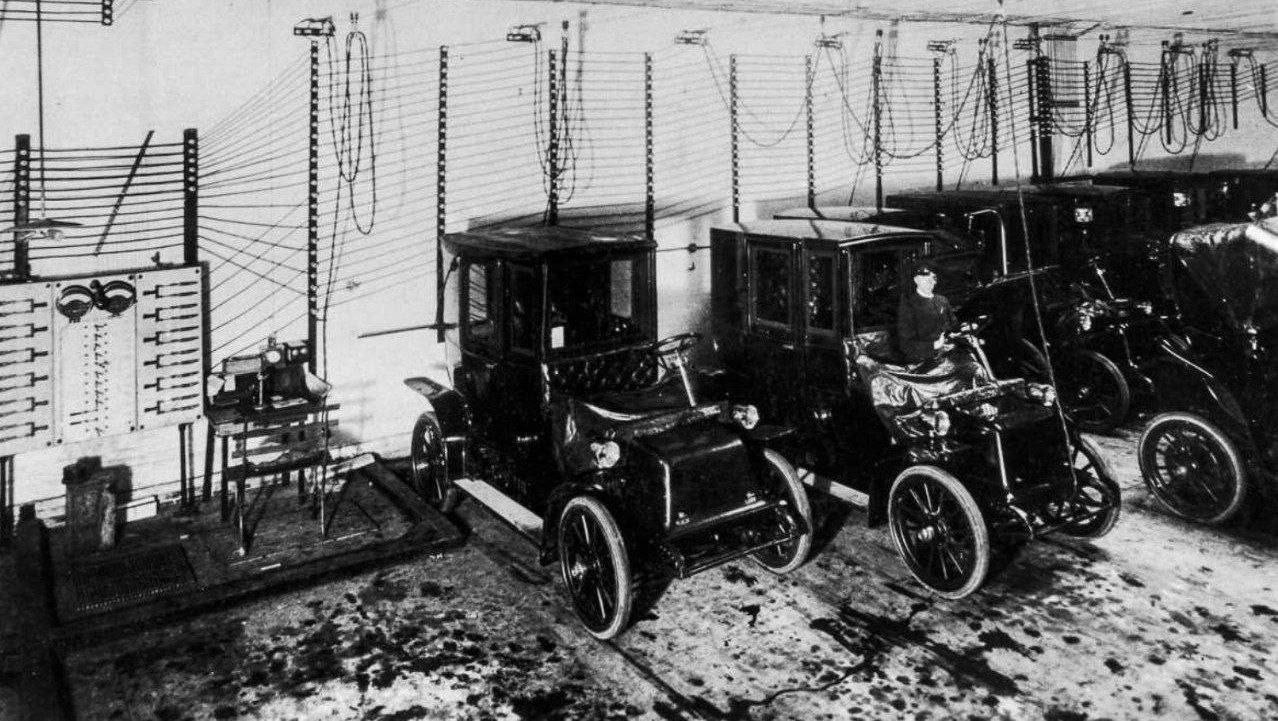
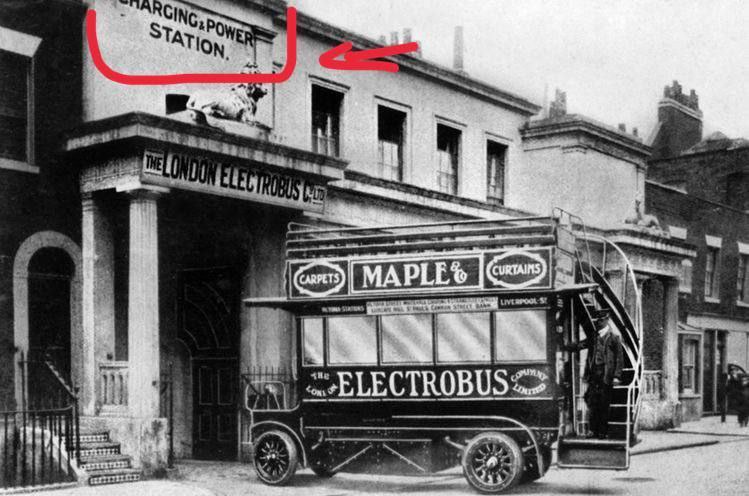
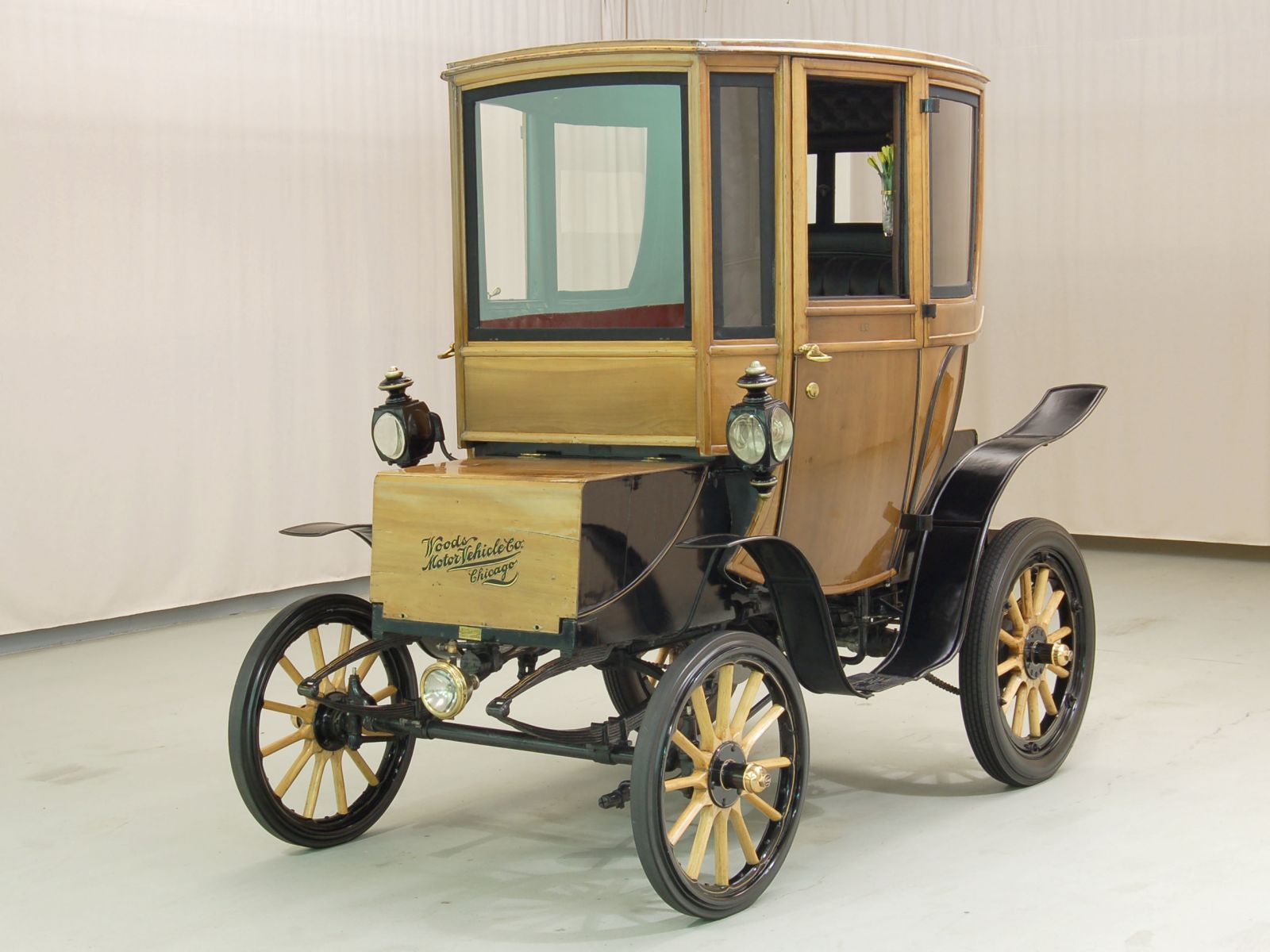
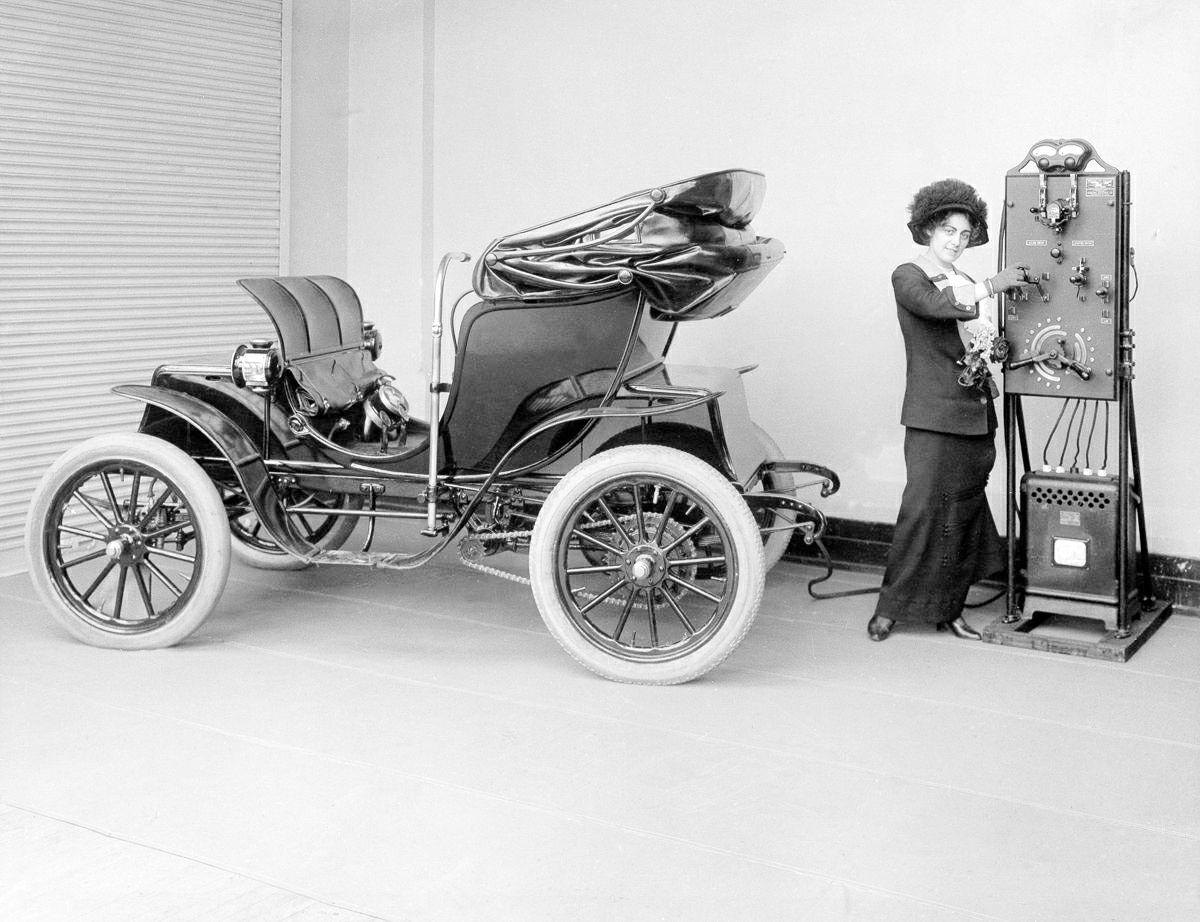
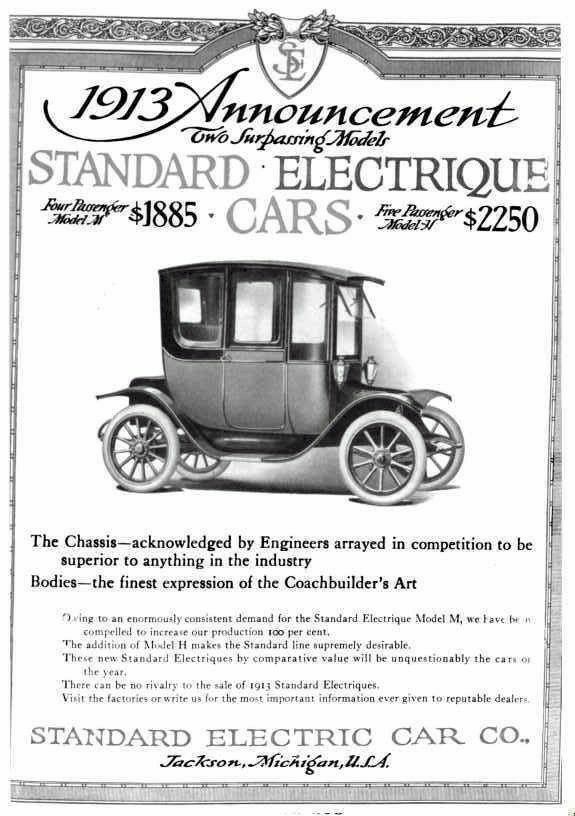
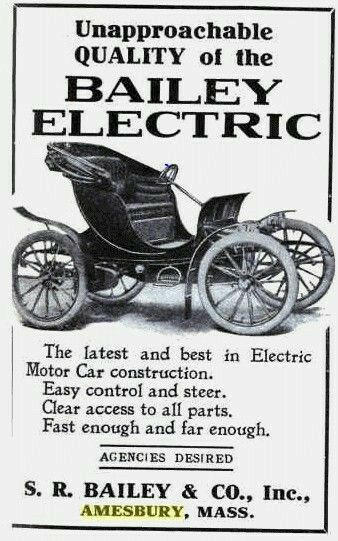
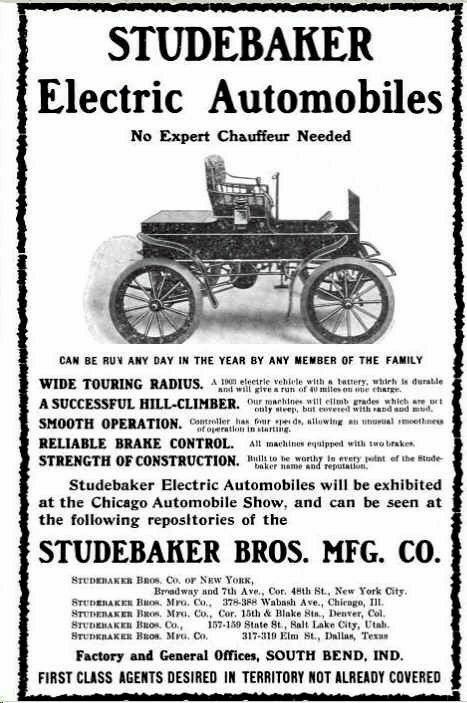
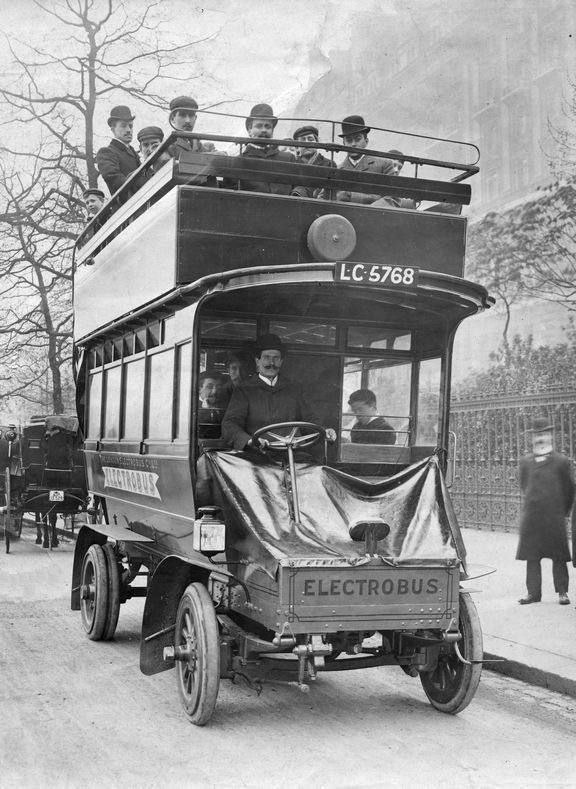
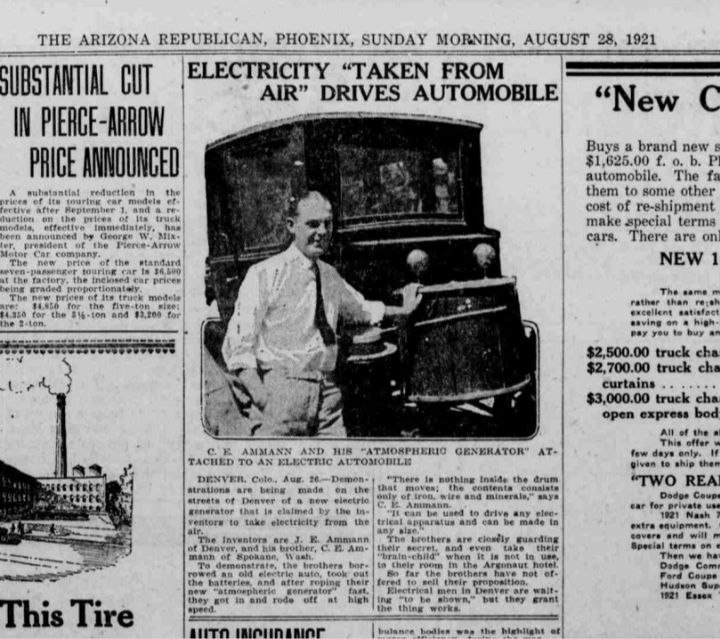
Articles
Electric Vehicles Died a Century Ago. Could That Happen Again?
https://nytimes.com/2025/05/26/business/electric-vehicles-history.html
https://archive.ph/u36QW
Battery-operated vehicles were a mainstay more than a hundred years ago, but only a few still exist — one happens to be in Jay Leno’s garage.
Are EV drivers at greater risk of causing an accident?
Posted 3 Oct 2024
https://rte.ie/brainstorm/2024/1003/1473191-electric-vehicles-risk-driving-behaviour-insurance-claims
https://archive.ph/fLyOt
Analysis: Research looked at specific risky behaviours and compared these between EVs, traditional vehicles, and hybrids.
EV ownership presents a further financial risk. We examined the claims we collected to determine the cost of repairs. We found that over a third of EV repairs cost more than €1,000 after a collision, a 6.7% increase from traditional vehicles. This means that not only are you more likely to crash, it is also more expensive to repair your car. This additional risk will likely be reflected in higher insurance premiums for EV drivers.
Amazon uses huge Diesel generator to charge electric delivery van fleet
Posted Jan 15, 2025
https://zerohedge.com/technology/watch-amazon-uses-huge-diesel-generator-charge-electric-delivery-van-fleet
Amazon closed out 2024 with more than 20,000 electric delivery vans manufactured by Rivian in its fleet nationwide. The e-commerce giant highlights on its website that the electric vans are part of its “urgent” climate change initiative to “remove carbon emissions from transportation systems”.
While the company promotes its electric delivery vans as part of its effort to save the planet from a fiery demise—an end-of-world scenario Al Gore has inaccurately predicted for decades—it appears that, at least in one location, Amazon is reportedly relying on a massive diesel generator to charge a fleet of Rivian vans.
Meanwhile, the Amazon founder (Jeff Bezos) is sailing around the world in a superyacht with massive diesel motors. He also flies in private jets that gobble up huge amounts of jet fuel. The climate emergency doesn’t apply to the billionaire climate alarmists. Folks are starting to understand the climate grift, while governments ban gas stoves from ordinary folks.
“Millions” wasted on electric school busses as Maryland pivots back to diesel
By Tyler Durden, posted Aug 03, 2024
https://zerohedge.com/markets/millions-wasted-electric-school-busses-maryland-pivots-back-diesel
https://wtop.com/montgomery-county/2024/07/electric-school-buses-led-to-millions-in-wasteful-spending-montgomery-co-ig-says
Electric buses were supposed to save money for Maryland’s largest school district. But a new report by Montgomery County’s inspector general found they “led to millions of dollars in wasteful spending” in part due to late deliveries and maintenance issues.
The report also highlighted mechanical and charging failures, which rendered many buses inoperable for extended periods. From February 2022 to March 2024, buses failed to complete routes 280 times, with repairs taking an average of 13 days, and more than half exceeding five working days, according to WTOP.
EV battery repair is dangerous. Here’s why mechanics want to do it anyway.
By Maddie Stone, published Dec 08 2023
https://grist.org/transportation/ev-battery-repair-is-dangerous-heres-why-mechanics-want-to-do-it-anyway
Fixing car and e-bike batteries saves money and resources - but challenges are holding back the industry.
About 3 times a day, Rich Benoit gets a call to his auto shop, The Electrified Garage, from the owner of an older Tesla Model S whose car battery has begun to fail. The battery, which used to provide several hundred miles of range, might suddenly only last 50 miles on a single charge. These cars are often out of warranty, and the cost of replacing the battery can exceed $15,000.
For most products, repair is a more affordable option than replacement. And in theory, lots of these Tesla batteries can be fixed, said Benoit, who runs one of the few Tesla-focused independent repair shops in the United States. But due to the time and training involved, the safety considerations, and the complexity of the repair, Benoit said that the bill to fix one car battery at his shop might run upwards of $10,000 — more than most consumers are willing to pay. Instead, he said, many choose to sell or donate their old vehicle for scrap and buy a brand new Tesla.
“It’s getting to the point where [the car] is almost like a consumable, like a TV,” Benoit said.
Benoit’s experience heralds a problem that early adopters of EVs, as well as electric micromobility devices like e-bikes and e-scooters, are beginning to face: These vehicles contain big, expensive batteries that will inevitably degrade or stop working over time. Repairing these batteries can have sustainability benefits, saving energy and resources that would otherwise be used to manufacture a new one. That’s particularly important for EVs, which contain very large batteries that must be used for years to offset the carbon emissions associated with making them. But many EV and e-mobility batteries are difficult to repair by design, and some manufacturers actively discourage the practice, citing safety concerns. The small number of independent mechanics who repair EV or e-bike batteries struggle to do so affordably due to design challenges, safety requirements, and a lack of access to spare parts.
“There’s a lot of batteries in the recycle bin that could be repaired,” said Timoté Rouffignac, who runs a small e-bike battery repair business called Daurema in Brussels, Belgium. But “because they are not made to be repaired, it’s quite hard to propose a good price.”
Not ESG-friendly: Insurers junk entire EVs for minor accidents
By Tyler Durden, posted Mar 21 2023
https://zerohedge.com/technology/not-esg-friendly-insurers-junk-entire-evs-minor-accidents
“We’re buying electric cars for sustainability reasons” Matthew Avery, research director at automotive risk intelligence company Thatcham Research, said.
Avery pointed out, “an EV isn’t very sustainable if you’ve got to throw the battery away after a minor collision”
A Tesla battery pack costs tens of thousands of dollars and represents a large percentage of the vehicle’s price tag. Insurance companies have found that it’s uneconomical to replace battery packs if damaged.
According to Lauterwasser, the production of EV batteries results in significantly higher CO2 emissions compared to conventional fossil-fuel models. Therefore, if these batteries are discarded with low mileage, it undermines the goal of promoting environmentally-friendly practices.
Sandy Munro, head of Michigan-based Munro & Associates, which analyzes vehicles and advises automakers on how to improve them, said the Model Y battery pack has “zero repairability”
Scratched EV battery? Your insurer may have to junk the whole car
By Nick Carey, Paul Lienert and Sarah Mcfarlane, posted March 20 2023
https://reuters.com/business/autos-transportation/scratched-ev-battery-your-insurer-may-have-junk-whole-car-2023-03-20
For many electric vehicles, there is no way to repair or assess even slightly damaged battery packs after accidents, forcing insurance companies to write off cars with few miles - leading to higher premiums and undercutting gains from going electric.
And now those battery packs are piling up in scrapyards in some countries, a previously unreported and expensive gap in what was supposed to be a “circular economy”
Tesla owner stranded at supercharger station on Christmas eve after cold weather paralyzes battery
By “Tyler Durden”, Dec 25, 2022
https://zerohedge.com/technology/tesla-owner-stranded-supercharger-christmas-eve-after-cold-weather-paralyzes-battery
Besides freezing door handles, Tesla owners who braved the cold this Christmas weekend were met with ‘winter range anxiety.’ Cold weather will degrade battery performance. At least one video went viral on Christmas Eve of a person whose Model S wouldn’t charge in the cold at a Supercharger station.
In a video posted on TikTok, Nati said battery issues began on Friday when his Tesla wouldn’t warm up so it could charge. He tried charging at his house and a Supercharger station, but nothing seemed to work. In a last-ditch effort, he went to Supercharger station on Christmas Eve, where he experienced the same issues.
Tesla S will not charge in the cold. Stranded on Christmas Eve!
That’s why they’re so great for the environment. You can’t use them half the time.
https://tiktok.com/@domnatishow/video/7180839253562199338
The dirty road to clean energy: how China’s electric vehicle boom is ravaging the environment
By Antonia Timmerman, photography by Muhammad Fadl, posted 28 November 2022
https://restofworld.org/2022/indonesia-china-ev-nickel
In neighboring Indonesia, nickel extraction is causing environmental and social devastation.
The tropical islands that make up Indonesia’s archipelago are home to the planet’s largest nickel reserves, tied with Australia. For decades, the country enjoyed a thriving nickel export industry — a necessary ingredient for stainless steel production around the world. But under President Joko “Jokowi” Widodo, Indonesia has stopped exporting raw nickel materials. Instead, it has its sights set on a newer industry that it hopes will make the most of its nickel reserves: electric vehicles (EVs).
What they aren’t telling people about EVs
By Eric, posted September 15, 2022
https://ericpetersautos.com/2022/09/15/what-they-arent-telling-people-about-eeeeeeeveeeeeees
https://zerohedge.com/technology/what-they-arent-telling-people-about-evs
Everyone knows - well, everyone has heard - that EVs are the vehicles for solving what is said to be the “climate crisis” - which is an interesting thing to say, given the EVs being produced are much more powerful than they need to be to get people from A to B. That requires huge batteries, to store all the electricity needed to make them go very fast, very quickly.
You’d think that would be discouraged - even banned - if there is a “crisis” looming that is being caused by the “emission” of carbon dioxide. After all, more of the latter is being “emitted” than necessary by the utility plants that generate almost all of the electricity that powers over-powered EVs.
Does anyone need to get 60 in 2.9 seconds? Or even six? If there is a “crisis” that is… Yet practically every EVs on the market is designed specifically to use up more power than is needed for bare-minimum or even economy-car-equivalent basic transportation needs.
There are some other things about EVs they aren’t telling you about as well:
- You can’t “fast” charge an EVs at home
- A “fast” charge is never a full charge
- The farther you drive, the shorter the service life
If you don’t have a garage, where will you plug in your EVs? Will you be able to run an extension cord from inside your house - or apartment - to wherever the EVs is parked?
Did you know that leaving an EVs garaged outside - in the cold - will result in the EVs’s range when you parked it being less when you get up the next day to drive it? This is because EVs burn power even when they aren’t being used - because EVs have powered heating (and cooling) systems that are always on - to keep the battery from getting too cold (or too hot). That means needing to keep the EVs plugged in, to avoid loss of charge while it’s just sitting - especially if it is sitting outside, in the cold (or heat).
Finally, for those who are considering an EVs because they believe that they are thereby reducing their “carbon footprint”: You are probably increasing it. For 2 reasons:
One, EVs do not last as long as non-EVs - because EVs battery packs do not last as long as non-EVs do and cost more than it’s worth to replace them when they can no longer power the EVs. That means a new EVs sooner. Which means new raw materials (and carbon dioxide “emissions”) to make the new EVs - which will be just as prematurely disposable as the old EVs.
Two, because EVs are energy hogs. Even the small ones like the Tesla 3 - which is a compact-sized car comparable to a Honda Civic sedan - has more than 1,000 pounds of battery pack, which it uses to deliver the speedy 0-60 times it touts. But that entails a probable doubling of the size of the battery pack that would otherwise be needed to deliver adequate (rather than “ludicrous”) speed - and also uses twice (or more) the power needed to keep it charged up. Almost all of that power - especially the commercial-grade power available at “fast” chargers - produced by combusting lots of natural gas, oil and coal. Resulting in lots of carbon dioxide “emissions”
Your modern car is a privacy nightmare
By Aaron Gordon, 12/17/19
https://jalopnik.com/your-modern-car-is-a-privacy-nightmare-1840483775
Next time you feel the need to justify to a family member, friend, or random acquaintance why you drive an old shitbox instead of a much more comfortable, modern vehicle, here’s another reason for you to trot out: your old shitbox, unlike every modern car, is not spying on you.
That’s the takeaway from a Washington Post investigation that hacked into a 2017 Chevy Volt to see what data the car hoovers up. The answer is: yikes.
Remote access is becoming more and more common
Anyone sold/traded in a car recently that had a mobile app you could use to access the car? If you have not logged out or deleted the app, see if you can you still access it.
Can you still tell where it is, lock/unlock it, roll down the windows, or remote start it?
What does your car know about you? We hacked a Chevy to find out.
https://washingtonpost.com/technology/2019/12/17/what-does-your-car-know-about-you-we-hacked-chevy-find-out
Perspective by Geoffrey A. Fowler, posted December 17 2019
Our privacy experiment found that automakers collect data through hundreds of sensors and an always-on Internet connection. Driving surveillance is becoming hard to avoid.
On a recent drive, a 2017 Chevrolet collected my precise location. It stored my phone’s ID and the people I called. It judged my acceleration and braking style, beaming back reports to its maker General Motors over an always-on Internet connection.
Cars have become the most sophisticated computers many of us own, filled with hundreds of sensors. Even older models know an awful lot about you. Many copy over personal data as soon as you plug in a smartphone.
But for the thousands you spend to buy a car, the data it produces doesn’t belong to you. My Chevy’s dashboard didn’t say what the car was recording. It wasn’t in the owner’s manual. There was no way to download it.
When I buy a car, I assume the data I produce is owned by me — or at least is controlled by me. Many automakers do not. They act like how and where we drive, also known as telematics, isn’t personal information.
Cars now run on the new oil: your data. It is fundamental to a future of transportation where vehicles drive themselves and we hop into whatever one is going our way. Data isn’t the enemy. Connected cars already do good things like improve safety and send you service alerts that are much more helpful than a check-engine light in the dash.
But we’ve been down this fraught road before with smart speakers, smart TVs, smartphones and all the other smart things we now realize are playing fast and loose with our personal lives. Once information about our lives gets shared, sold or stolen, we lose control.
Why Tesla is a privacy nightmare
https://zakruti.com/itech/it\_industry/video-4864
https://youtube.com/watch?v=Qjkt3X2WLrw
- lots of privacy and security issues with the cars over the years
- Tesla’s auto source code was stolen and given to a chinese company
- can send 1GB of data over the internet in 1 day
- they sey they allow you to opt out of telemetry, but nobody in the company knows HOW
- you need new phones to connect to the car?
- most of the features are insecure including: remove opening doors, remote controlling app
Tesla is collecting insane amount of data from its Full Self-Driving test fleet
By Fred Lambert, posted Oct 24 2020
https://electrek.co/2020/10/24/tesla-collecting-insane-amount-data-full-self-driving-test-fleet
He says that he saw Tesla pulling as much as 4 gigabytes of data from his car
Electric tram
The Hill of Howth Tramway and tram No. 9
http://www.nationaltransportmuseum.org/b004.html
Opened in 1901, this most famous of tramways unfortunately never made a profit and CIE, which took over the GNR in October 1958, closed it down on 31st May 1959. The depot and power station were at Sutton, electricity generation ceasing when an ESB supply was substituted in the early 1930s.
In 1902, two further trams, much different from Nos. 1-8, were obtained. Nos. 9 and 10 were 73 seaters built by Milnes, the firm which also supplied Dublin’s first electric trams in 1896.
The Hill of Howth Tramway
The tramline was officially opened on 1st June 1901 and was known as the Hill of Howth Tramway.
https://fingal.ie/hill-howth-tramway
Hill of Howth Tramway
https://en.wikipedia.org/wiki/Hill_of_Howth_Tramway
https://en.wikipedia.org/wiki/Hill_of_Howth_Tramway#/media/File:Howt_Tram.jpg
‘I travelled on the Hill of Howth tram; I would love to relive that memory’
New report estimates it would cost €6.7m to reopen line which closed in 1959
https://irishtimes.com/news/ireland/irish-news/i-travelled-on-the-hill-of-howth-tram-i-would-love-to-relive-that-memory-1.3351062